Two new research tools are supporting a groundswell of public interest that could make a difference to the future of Australian frogs, which are facing tough times.

IF YOU’RE HOPING to be involved in the discovery of a new vertebrate species, then Australian frogs could be your best chance.So far, Australia has a confirmed 246 species and subspecies of frog. But there may be several dozen more out there still waiting to be identified, says Dr Jodi Rowley, the Australian Museum’s curator of amphibian and reptile conservation biology.
“We think that anywhere up to about 20 per cent of our frog species still remain to be discovered,” she explains, “and, potentially, anyone out there could find them.”
Along with the museum’s director, Kim McKay, Jodi is the driving force behind what’s become one of Australia’s most successful citizen science projects – FrogID. At its core is an interactive app, downloadable for free on a smartphone, that exploits the fact that every frog species has its own unique call. Each amphibian ribbit, chirp, tweet, croak or pobblebonk that emerges across Australia after rain is able to be so precisely linked to the species that produces it that Kim refers to frog calls as “audio DNA”. The app can record these telltale sounds, document exactly where they occur, send the information to the museum to be logged and return a response to the user identifying the species responsible.
This story is from the {{IssueName}} edition of {{MagazineName}}.
Start your 7-day Magzter GOLD free trial to access thousands of curated premium stories, and 9,000+ magazines and newspapers.
Already a subscriber ? Sign In
This story is from the {{IssueName}} edition of {{MagazineName}}.
Start your 7-day Magzter GOLD free trial to access thousands of curated premium stories, and 9,000+ magazines and newspapers.
Already a subscriber? Sign In

SULAWESI SENSATIONS
There are worlds within worlds and marvels untold waiting to be experienced on Indonesia's remote islands.
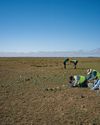
SEARCHING FOR AUSSIE DINOSAURS
Our understanding of where to find ancient life in Australia has been turned on its head by a new appreciation of the country's geology. Now the world is looking to our vast outback as the latest hotspot to locate fossils.
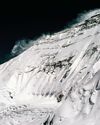
THE HARDEST NIGHT
The first Australian ascent of Mt Everest in 1984 is one of the great feats of mountaineering. Climbed by a small team semi-alpine style, with no bottled oxygen, via the Great (Norton) Couloir, it remains unrepeated 40 years later.
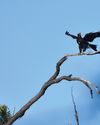
WEDGE-TAILED WONDER
The chance discovery of an eagle nest leads to an extended vigil observing normally hidden behaviours of one of nature's supreme winged marvels.
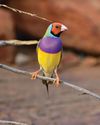
BURDENED BY BEAUTY
Northern Australia's Gouldian finch survives in huge numbers in cages around the world, but its wild population continues to struggle.
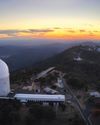
A TELESCOPE FOR A GOLDEN AGE
After a stellar 50 years as one of the country's major scientific assets, the AAT continues to play a major role in keeping Australian astronomy on the world stage.
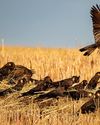
COCKY WHISPERING AT COOMALLO CREEK
This patch of remnant bush on the edge of the West Australian wheatbelt is a place loved by one of Australia's rarest bird species and the man who has studied the site for more than 50 years.

A PIONEERING PAIR
Louisa Atkinson and her mother, Charlotte, were among Australia's earliest authors, and pioneers in women's rights.

THE LONGEST WALK
Lucy Barnard is walking from Argentina to Alaska -the length of the Americas - on an extraordinary journey of endurance and adventure.
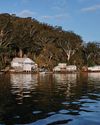
SECLUDED, BUT NOT ALONE
In an era of heightened social isolation, where many of us lead lonely lives, Dangar Island offers the chance to be part of a supportive, connected community.